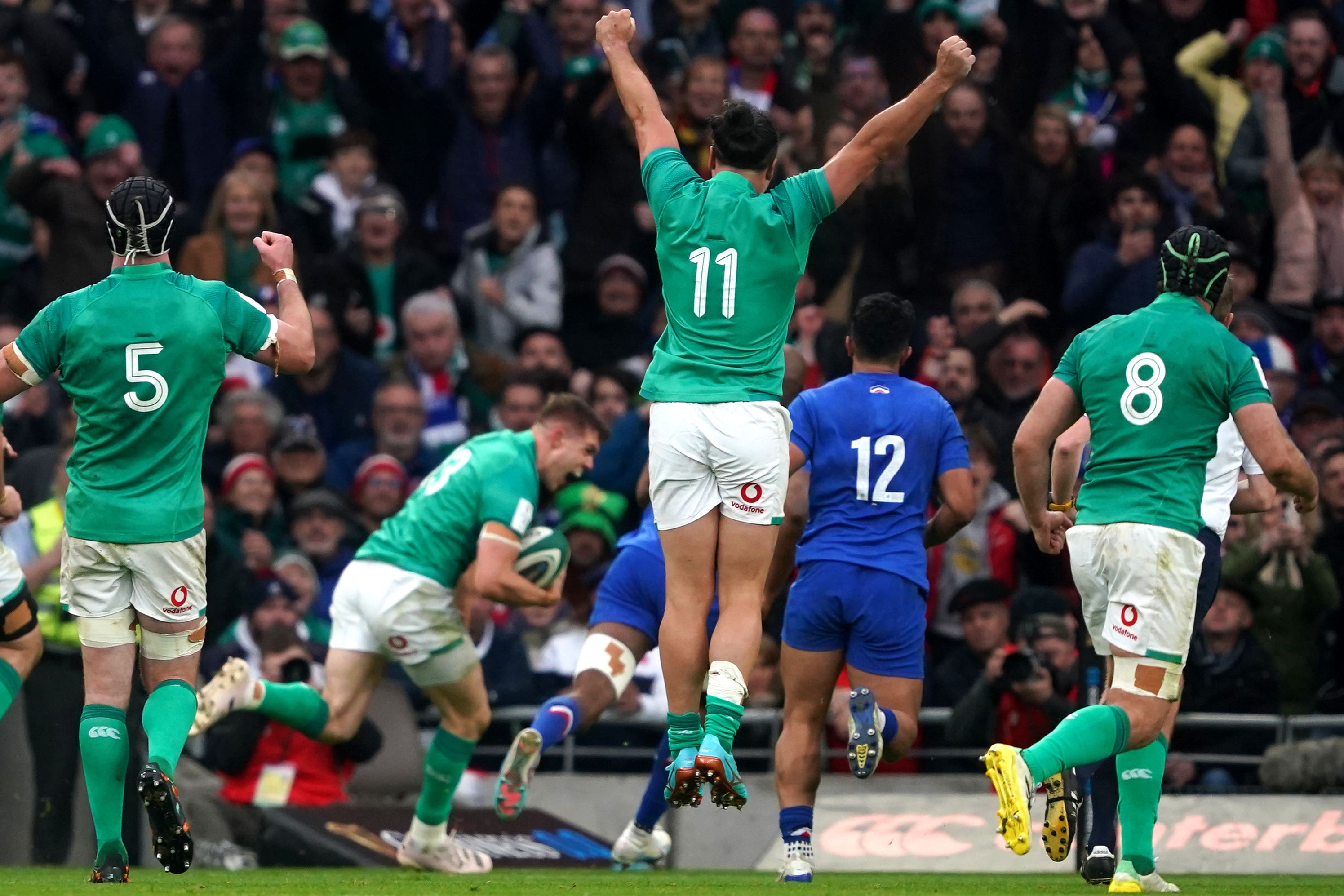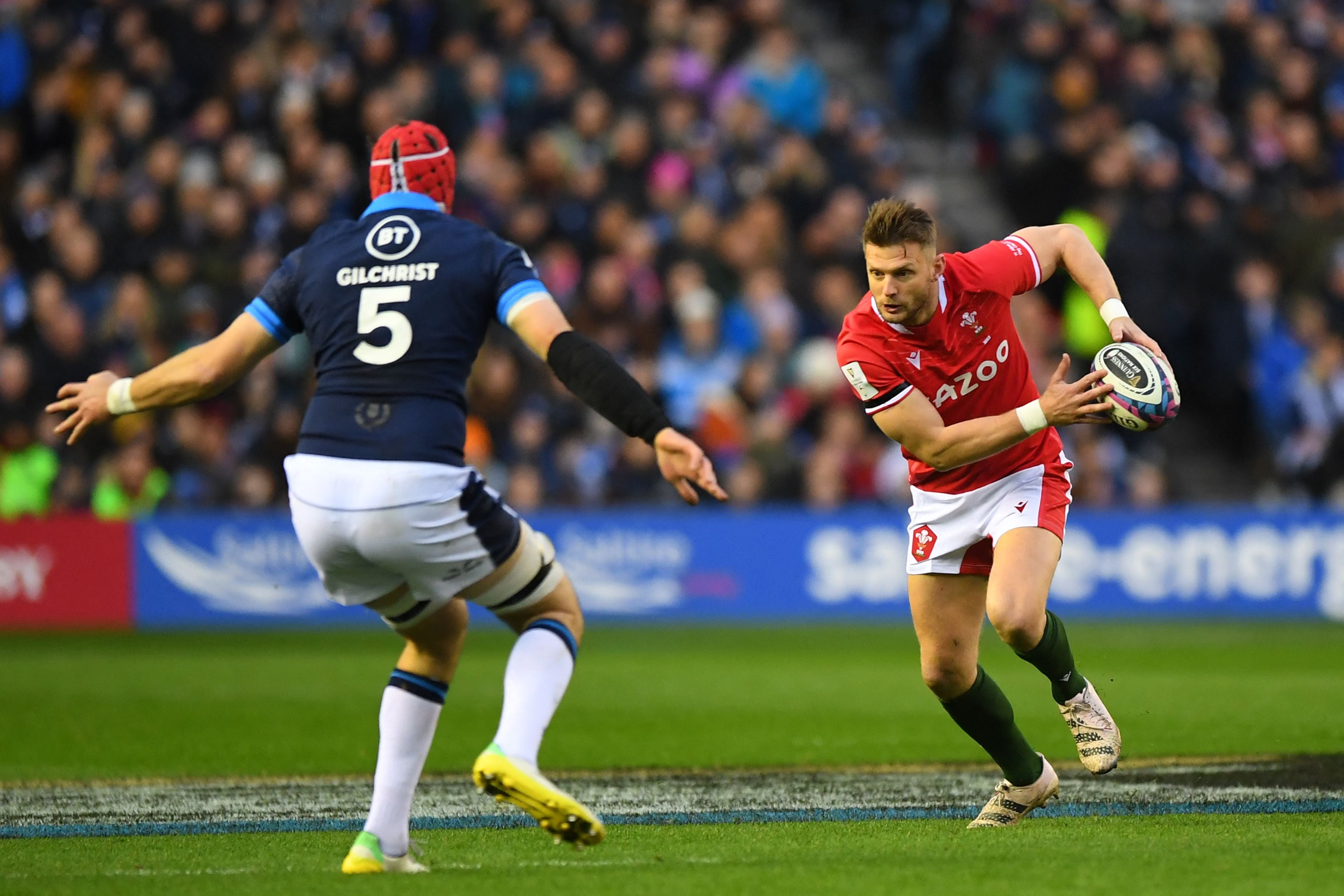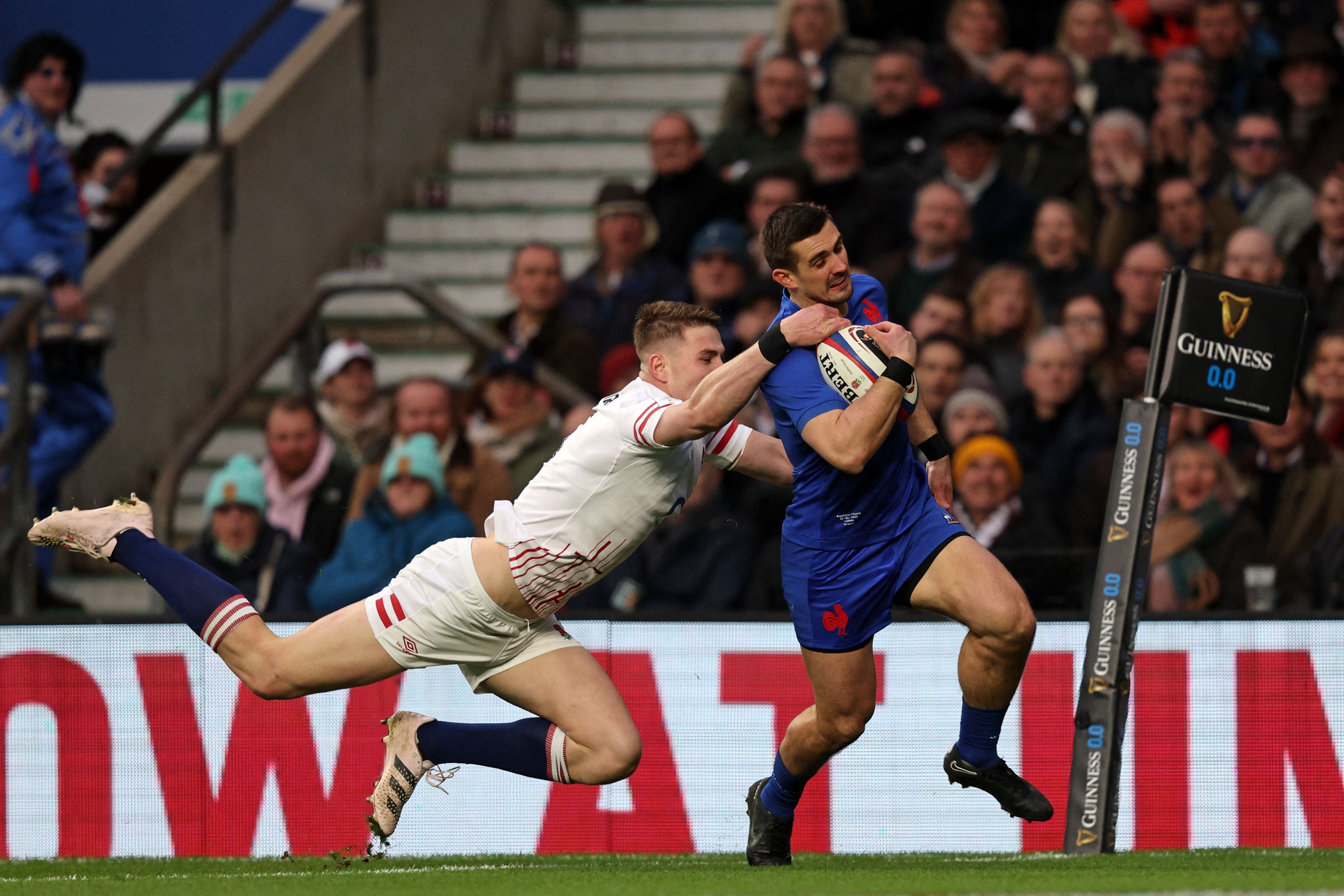Welcome to the pressure dome: The Six Nations is back, but not as you know it...
New faces, old rivalries: Six Nations stalwarts Dan Biggar, Antoine Dupont, Johnny Sexton, Stuart Hogg and Owen Farrell have hung up their boots or won’t feature, so it’s time for the next generation of rugby stars to light up this year’s tournament, writes Jim White


This Friday, it is back. The Six Nations returns and with it comes a mix unique in sport. Nowhere else can you find such an intoxicating cocktail of ground-shaking collisions, astonishing athleticism, reckless courage and... grown men dressed up as giant leeks.
More to the point, nowhere else in the sporting calendar offers up such a regular feast of partiality. In the Six Nations, it is not the taking part that counts. It’s the beating them, it’s the rubbing their noses in the mud, it’s the joy of seeing the other lot defeated.
This is the competition that provides an annual opportunity not just to watch the finest rugby players in Europe batter the living daylights out of each other, but for the thousands flocking to the live event, and the millions more watching the titanic smashes on television, to indulge their inner nationalist. It means that Friday evening is one of those rare occasions when, as they head to the Stade Velodrome in Marseille for the tournament opener, French fans can cheerfully tuck a live cockerel under their arm, passing on the way Irishmen decked out in those Guinness hats that pubs hand out on St Patrick’s Day. On Saturday, Scots in their hundreds can dress up in a kilt, sporran and tam o’ shanter and mingle in a Cardiff pub before the game with Welshmen in full-face daffodil crowns. As for the English, off to Rome in their uniform of Barbour and red corduroys, well everyone can cheerfully hate them.
Because for the fans flocking in their thousands to the south of France, Rome or Cardiff this weekend, the Six Nations offers up a welcome invitation to engage in a bit of unfettered patriotism even as they drink the place dry. For most, it is a bit of fun. Just as long as they win. And more importantly, the other lot lose.
Rugby delivers this extraordinary annual trial of strength between the nations in a way no other sport does. Its prominence, its importance and its meaning seem to swell over time. For so many, the Six Nations has become the most regular and prominent expression of identity available. This is a competition that matters.
Which, for those out there doing the rucking and mauling, passing and running, means it has become an ever tougher examination. Not just in the way in which rugby players seem to be growing bigger and more muscular by the season, the hits are harder, the tackles more ferocious. But in the responsibility they carry out onto the pitch.

This week, the stalwart Welsh fly-half Dan Biggar gave an interview about his recent retirement from the international game. For the past decade, he has been central to the Wales team, its tactical figurehead, the man who, with his passing and kicking, makes the side tick. And when he was asked how he would feel about not stepping out against Scotland in the opening round of matches, his response was telling.
“Well,” he said. “I suppose it is someone else’s turn to get the s*** for the next 10 years.”
Biggar knows. The pressure piled on the players in the Six Nations is like nothing else. So much is invested in them. So much pride, prestige and purpose. The fact is they are the physical embodiment of national identity. Which means any misstep can hang heavy. And Biggar has grown more than aware of what that entails. Across a tournament in which things have not gone as he might have wished, he knows what it is like to become the focus of fury. Or perhaps even worse, the repository of weary disappointment. What he refers to as s*** is not simply intense scrutiny, or the lynx-eyed attentions of critics in the press. It is the fact that, as he runs out on the field, he is carrying the weight of national pride, expectation and ambition on his shoulders. That is some responsibility for a young man.

And in rugby, it comes round more frequently and intensely than in any other sport. In football, the World Cup is every four years. That’s if your country qualifies. The Olympics too are quadrennial. Plus, as the British team will head to Paris in the summer under a unified flag, there is none of the singular nationalism of the Six Nations. If a Scots swimmer strikes gold, a Welsh sprinter makes the podium, or an English gymnast breaks a world record, it is all under the union flag.
But the Six Nations is different. Every February, it is there, relentless, unyielding, unstoppable, the rallying point for national identity. And, inevitably, there is a downside. In a sense, it was ever thus. Players have always been obliged to carry the expectations of their nation. But these days, the intensity has grown manifold, with the anxiety and desperation communicated directly to the young men’s phones. The pile-ons, the social media roastings, the ex-player disgruntlement: over the next few weeks, it will be coming someone’s way. Big time.
No wonder so many stalwarts of the game have decided not to be involved this time around. As well as Biggar, Johnny Sexton, the Ireland linchpin, has absented himself; Antoine Dupont, the French talisman, has decided to concentrate on trying to win Olympic gold in the sevens competition; Stuart Hogg has retired, meaning Scotland will be without his organising panache for the first time since 2011; while England’s frighteningly intense long-term captain Owen Farrell has stepped back from the front line, preferring to spend his time in French club rugby. England have also lost Courtney Lawes, Ben Youngs and Jonny May, while Wales will not be able to call upon their absurdly quick young winger Louis Rees-Zammit. None of them have given up playing for a living (though Rhys-Zammit will be chucking around a different sort of oval ball in the NFL). They have just turned their backs on the Six Nations.

At first sight, you might think this odd. After all, every rugby player will tell you this is the competition they want to be involved in. These are lads brought up on watching their mums and dads weeping at the national anthem, on rehearsing a grand slam-winning try in the school playground, on daydreaming about pulling on the national jersey. This is the ambition of every youngster. When they go out, they are predestined to give it their all. And they do. Courageously, determinedly and committedly. For every rugby player, it is all they want: to do it for their country.
But listening to Biggar – and Farrell, Hogg and Sexton would doubtless agree – it is clear that ingenuous initial thrill soon comes couched in a caveat. There are people watching who take what the players do even more seriously than they do themselves. Any slippage, any faltering, anything other than victory will be regarded by many as unforgivable. And they are not shy of letting the lads know.
It is telling that, with Farrell now making himself unavailable and Marcus Smith, his obvious replacement, unavailable through injury, the England coach Steve Borthwick did not accede to the clamour from many to put the 21-year-old Northampton fly-half Fin Smith into the side in his stead. Smith is a brilliant prospect, who recently almost single-handedly dismantled the grizzled Irish side Munster in a European Cup tie for his club. Borthwick, though, is aware of the different scale of pressure that comes from the Six Nations. He appreciates that chucking a youngster into the fray to make his debut is a risk too far. So the hugely experienced George Ford will play instead, with Smith doubtless coming on as a replacement late in the game, perhaps to rattle off a couple of confidence-boosting plays. Ease him in, because early failure can be devastating emotionally. He knows from personal experience that the Six Nations is a platform way more volatile than any other. It is not a place to gamble on exposure.

For sure, the taste of victory does not diminish with time. Players who complete a tournament grand slam can look forward to a future in which they never need to buy a pint again. Wherever they go they will be lauded. They will view the rewards as more than worth the struggle.
This, though, is a competition that only has one winner. The other five in the tournament are all losers. For those that don’t make it comes the recrimination, the score-settling and the overwhelming sense of letting down those who relied on them to lift the collective spirit.
But then, as the s*** that Biggar for so long faced piles up, they can at least console themselves with this certainty: there is always next year.
Join our commenting forum
Join thought-provoking conversations, follow other Independent readers and see their replies
0Comments